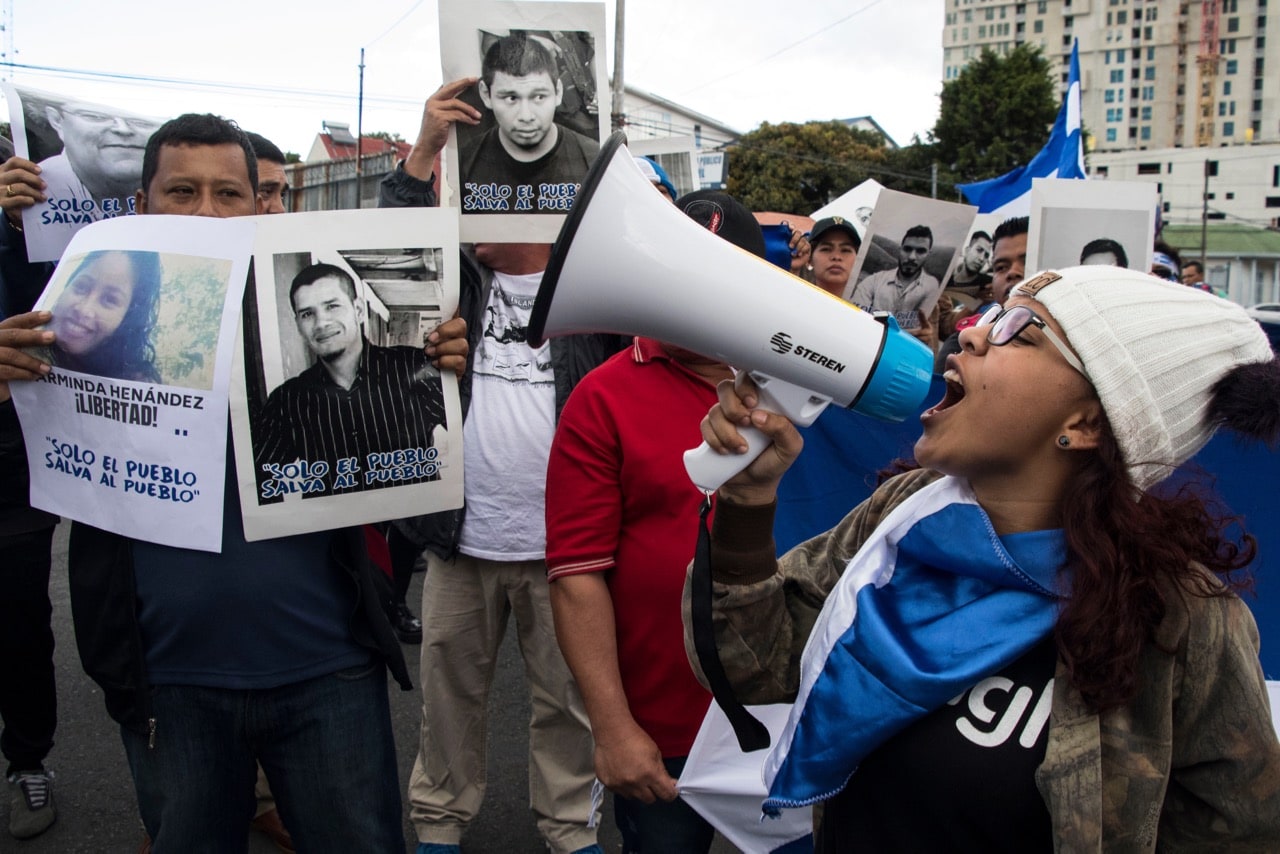A roundup of key free expression news in the Americas, based on IFEX member reports.
This is a translation of the original article.
2018 was a year tainted with violent episodes in the Americas as governments harshly repressed media outlets, journalists and citizens who attempted to freely express themselves.
Nicaragua represents the most recent in a long list of countries whose authoritarian governments have contested the fundamental principles of freedom of expression and the right to protest.
President Daniel Ortega’s government cancelled the legal status of civil society organisations, suppressed community media outlets and perpetrated attacks on journalists and demonstrators. These aggressive actions have been taking place since April 2018, but have intensified in recent months.
The international community has condemned the Nicaraguan government’s actions countless times, putting pressure on an administration that has ever decreasing support from countries in the region. The IFEX-ALC network has been among the organisations that have vehemently condemned the threats, attacks, raids and censorship of media outlets and journalists, along with the closure of civil society spaces in Nicaragua.
IFEX-ALC also condemned the actions of President Evo Morales’s government in Bolivia. A number of physical and verbal attacks on Bolivian journalists and media outlets were documented in 2018.
Likewise, recent reports of surveillance of journalists by police via social media networks have given cause for concern. IFEX-ALC also denounced the situation of impunity that exists regarding attacks on journalists and the media.
New presidents, same problems
In Brazil, a change of leadership took place when Jair Bolsonaro took power on 1 January 2019. The new president wasted no time in providing a worrisome demonstration of his interactions with the press. During his inauguration ceremony, the work of several journalists was seriously limited due to restrictions imposed by the new government.
This has begun to confirm the concerns of Brazilian civil society organisations. In an IFEX article, a number of organisations predicted a grim and frightening scenario for human rights in the country.
In addition, the new administration is inheriting some unresolved problems from its predecessors. Among them the sentencing of journalists to jail terms on defamation charges, which IFEX-ALC member ARTICLE 19 has characterized as absolutely disproportionate to the offence in question.
In Mexico, President Andrés Manuel López Obrador took power on 1 December 2018. The new administration is planning to deal with some of the endemic problems faced by the country, among them the fact that Mexico is the most dangerous country in the world in which to practice journalism as per several reports by international organisations. This intention, however, did not get off to a good start as the body of journalist Alejandro Márquez Jiménez was found on the day of López Obrador’s inauguration. Márquez Jiménez had disappeared on 30 November.
In the midst of this, a report by the Committee to Protect Journalists (CPJ) concluded that in Mexico ‘narcopolitics’ constitute a deadly mix for journalists covering crime and politics.
In Brief
In Venezuela, German journalist Billy Six was arbitrarily detained, resulting in an international outcry. Six is being held incommunicado and has begun a hunger strike to demand respect for his right to be in contact with his family.
The Foro de Periodismo Argentino (FOPEA), with the assistance of the Google News Initiative, carried out an online analysis in October and November 2018. The purpose of the research was to gather information about the labour status of female journalists in Argentina, as well as gaining an understanding of their professional roles and their perspective with respect to their male colleagues.
The Sindicato de Periodistas del Paraguay (Paraguayan Journalists Union, SPP) condemned the unjustified firing of 19 press workers at the state television station Paraguay TV HD.
The Inter American Press Association (IAPA) called on the governments of Ecuador and Colombia to fully clarify the murders of the El Comercio newspaper journalistic team in April 2018.
In Chile, IFEX-ALC member Derechos Digitales presented its recommendations regarding the United Nations Universal Periodic Review (UPR) of the country.
